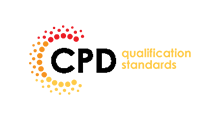 An organic production system is all about the relationship between different enterprises, and poultry should ideally be part of a wider organic system. Poultry and cropping systems, for instance, complement each other well; the poultry can occupy the last year of ley before cultivation, allowing the following crop take full advantage of the manure left by the birds; the arable phase of the rotation can contribute to the poultry ration and straw for bedding; and the birds can be fed on vegetable waste or graze the aftermath of vegetable crops. Different livestock enterprises can also interact to the benefit of the system as a whole, for instance establishing and maintaining clean grazing systems. Sheep can help to keep the grass on the range short, thereby encouraging the birds to graze.
An organic production system is all about the relationship between different enterprises, and poultry should ideally be part of a wider organic system. Poultry and cropping systems, for instance, complement each other well; the poultry can occupy the last year of ley before cultivation, allowing the following crop take full advantage of the manure left by the birds; the arable phase of the rotation can contribute to the poultry ration and straw for bedding; and the birds can be fed on vegetable waste or graze the aftermath of vegetable crops. Different livestock enterprises can also interact to the benefit of the system as a whole, for instance establishing and maintaining clean grazing systems. Sheep can help to keep the grass on the range short, thereby encouraging the birds to graze.
All organic systems are free range – organic poultry is never kept in cages – and the range should be well covered with suitable and properly managed vegetation. It must include shelter and other features that encourage ranging. Waterfowl must have access to water. This can be a natural feature, such as a stream, pond or lake, but you can use alternatives, such as cattle foot troughs, that also comply with the standards.
Flock sizes are much smaller than on conventional and most free range farms. Ideally, they should be housed in small mobile units that can be moved around the farm as an integral part of the rotation as discussed above, although static shed systems are permitted under the UK standards.
Every effort should be made to keep the stress on the birds to a minimum, both in terms of the physiological demands placed on them by the production system and the environment in which they are kept. Slower growing and traditional breeds that are better suited to free range systems are best, and if faster-growing strains are used, they must not be slaughtered before 81 days old. Positive welfare (that is the satisfaction of the animal’s needs, including behavioural needs, and not merely the avoidance of cruelty) is the name of the game. Mutilations such as beak trimming are banned. Birds should have the freedom to express normal behaviour and have sufficient space, proper facilities and the company of other birds to do so.
In terms of disease, management prevention is always better than cure, and biosecurity is the watchword. For example, houses are cleaned and disinfected between batches and ‘rested’ for at least two months per year. Certain feeding and water systems are better than others at preventing the spread of diseases. Basic disinfecting facilities and specific working practices also help prevent disease being spread around the farm by workers and visitors. Antibiotics are used to treat a specific problem, but cannot be used routinely.





-
Add a note